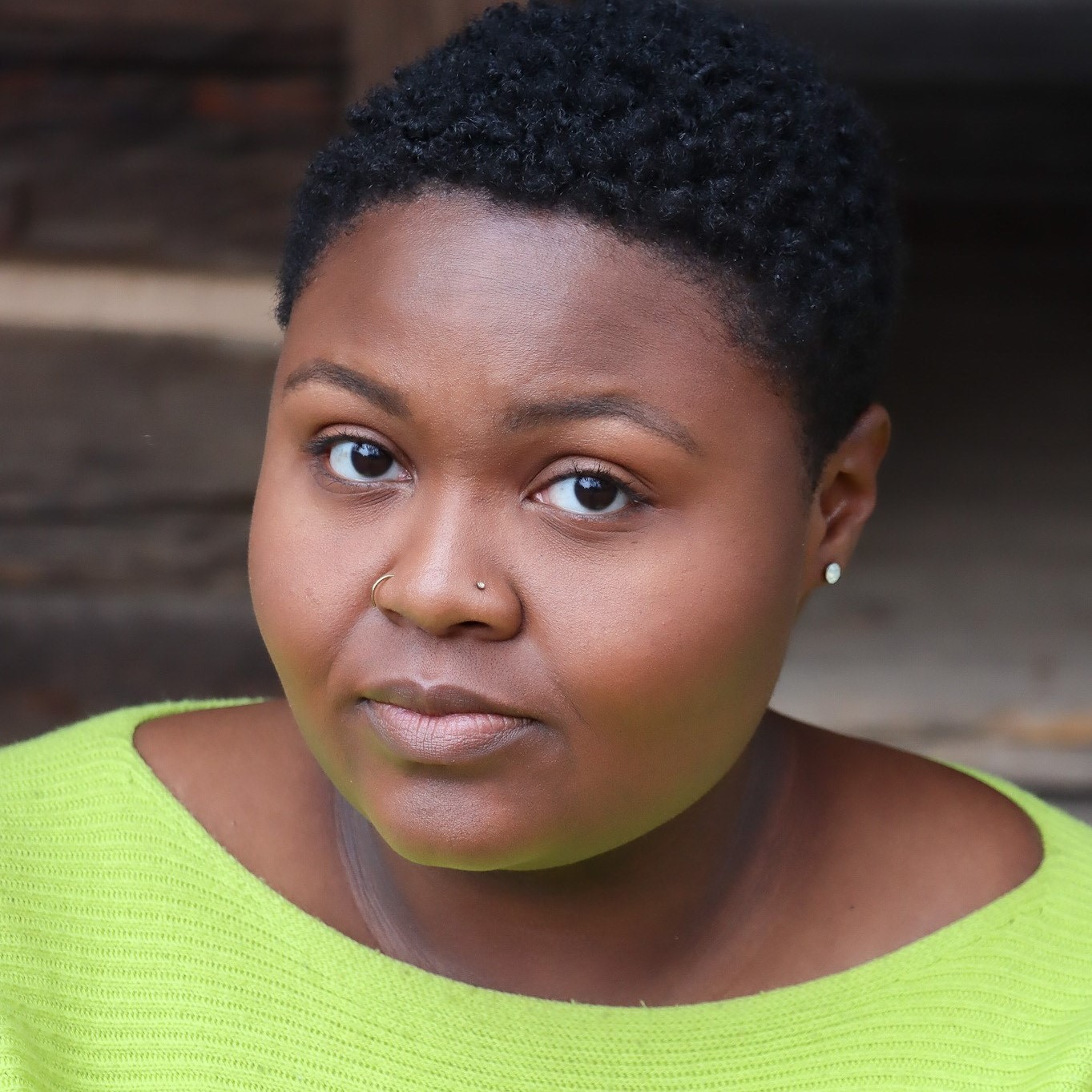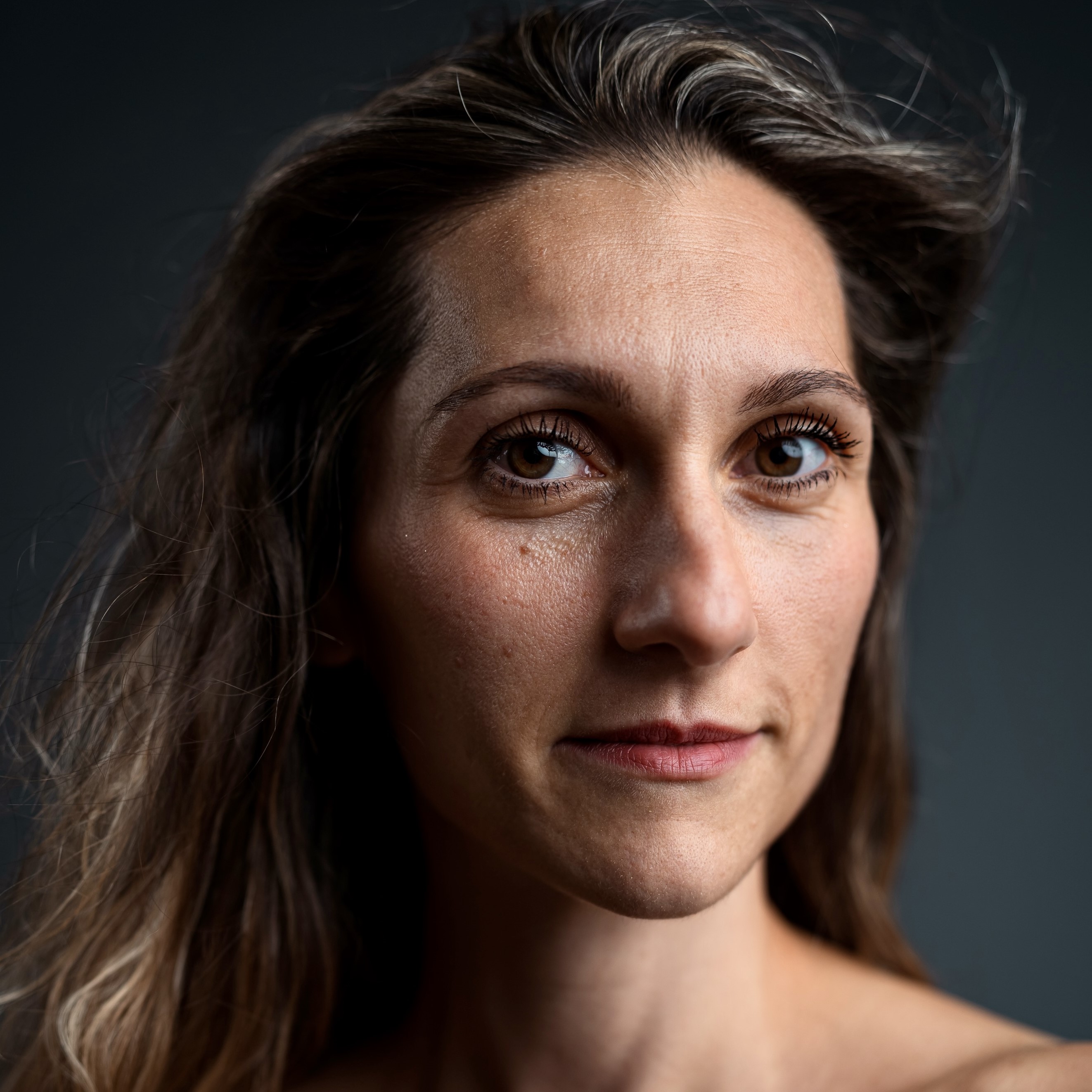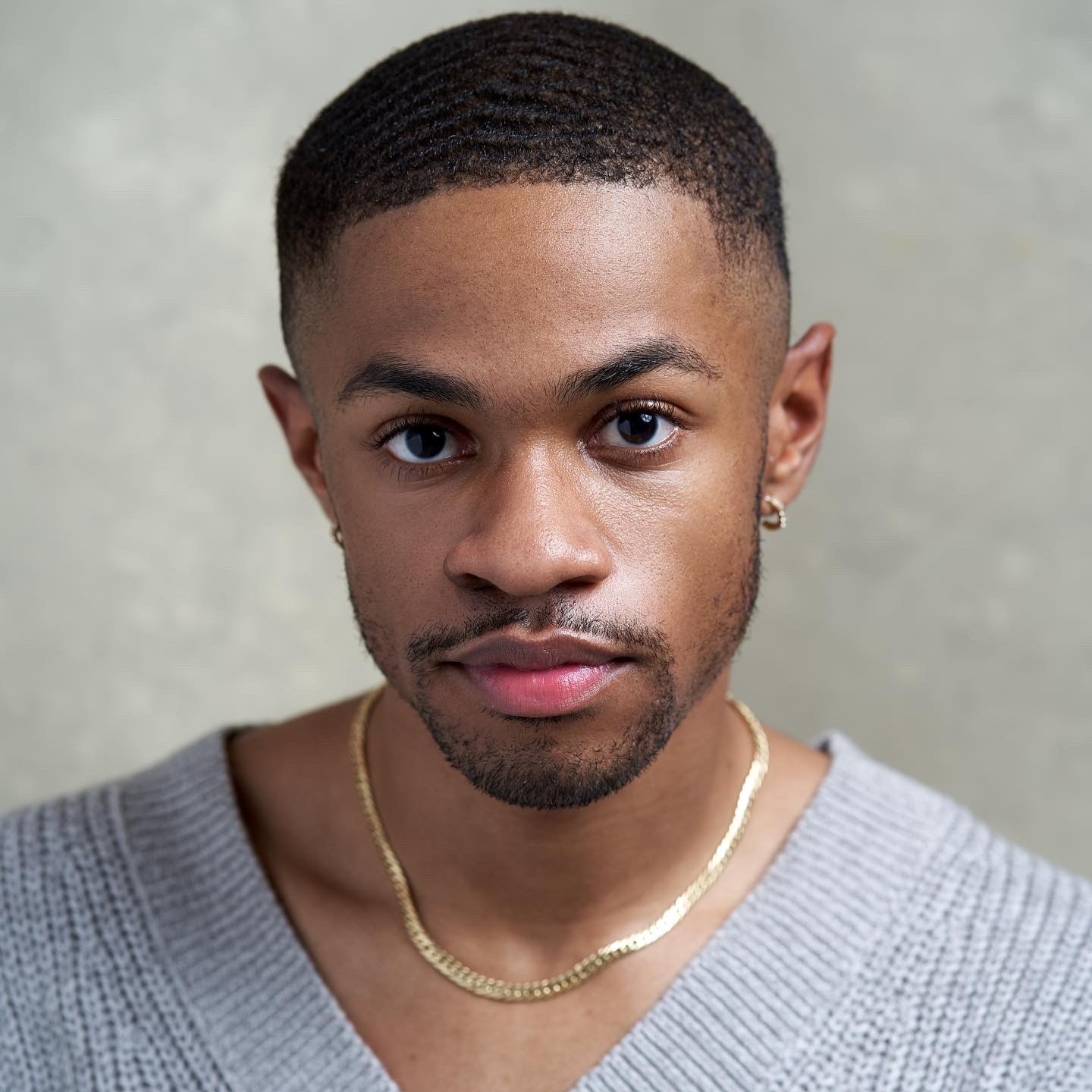
Get to Know Our Round 9 Reiser Lab Lead Artists
The Reiser Atlanta Artists Lab creates space and opportunity to uplift the voices of Atlanta’s artists. With the support of the Alliance Theatre, these artists are able to model their visions into reality. Encompassing a variety of theater disciplines, three projects are chosen to represent the communities that call Atlanta home.
Read more about the Reiser Atlanta Lab Round 9 projects and their lead artists below.
Note: These interviews have been edited for length and clarity. Be advised this article contains some instances of explicit language.
|
Anterior Leverett |
Ipek Eginli |
Justen Ross |
Sweet Clay Lands: Jamie is an award-winning farmer planning to start a new season on his sugarcane farm in Louisiana. Unfortunately, he and other Black farmers confront unrelenting challenges as they are blocked from vital funding. It is up to Jamie to fight for his family's land before the bank snatches it and puts it on the auction block.
Lead Artist: Anterior Leverett, Playwright
Other Reiser Lab Artists: Damian Lockhart and Jasmine Waters
Hold on to Your Names— An Artistic Exploration of Immigrant Women's Stories: This multidisciplinary art project—featuring artists from Turkey, Iran, and Colombia—empowers immigrant women to embrace their names and share their stories of living in a foreign country, ultimately promoting greater understanding and appreciation of their unique challenges and cultural identities.
Lead Artist: Ipek Eginli, Sound Artist
Other Reiser Lab Artists: Sara Ghazi Asadollahi and Juana Farfán
Rome & Juice: This Shakespearian classic gets a flamboyant New York Ballroom-inspired spin. Rome Montague falls in love with Fem Queen performance extraordinaire Juice Capulet during the hottest ball season of the year. Can their true love be the bridge between an age-old vendetta? Or will the pressure of the world and their houses’ disapproval be their downfall?
Lead Artist: Justen Ross, Playwright/Composer/Actor
Other Reiser Lab Artists: N'yomi Stewart aka Omi Juicy Balenciaga and Jade Maia Lambert
What is your inspiration for creating this piece, and why should it be done now?
Anterior: A few years ago, right before the pandemic, I was listening to the 1619 project podcast, and there was an episode that was following a Black farm family and their experience with trying to maintain hold of their farmland. I emailed this family and saw how often this happened. In just the research, it was so fascinating how prevalent this issue has been for Black farmers and Black landowners—their land is being threatened, they're not getting the same subsidies from the government or the same loan amounts in the USDA, and these black farmers are fighting back alongside politicians and Grassroots organizations. I'm somebody who's great-grandparents owned a farm. I've been in the South my entire life. I know people with farmland, and I never realized how prevalent the threat was for Black farmers, so that's been the huge inspiration behind the work.
Ipek: My inspiration for creating this piece stems from my personal experience of having both a common and unique name and the profound impact it has had on my identity and art. Growing up in both Turkey and the United States has shaped who I am, and my name, Ipek, meaning “silk” in Turkish, has always served as a powerful symbol of my journey. Sharing my name in social interactions evokes a range of reactions, from curiosity to frustration, and it has made me reflect on the significance of names in shaping our identities. I wanted to explore the stories of other women and their experiences with their common and unique names, as it is a topic that resonates deeply with me. It is essential to bring attention to this now, as it prompts us to question whether we are holding onto our names and identities or gradually letting them slip away.
Justen: After graduating, it becomes daunting doing auditions and self-tapes as an actor. You feel like you're off the beaten path. It was difficult for casting directors to cast me or find a type for me. Then, I decided I'm going to write something I would want to see! In 2012, I was brought into ballroom culture by my other artist Naomi Stewart. I pitched this crazy idea to her: What if ballroom met Romeo and Juliet? She loved the rap I wrote for Romeo if he saw Juliet. When the Reiser Lab came around, I had been working on my one-man show at the time. Then, I remembered Ava DuVernay's quote "If your dream only includes you, it's too small." I just leaned into getting Rome and Juice done. This is a love letter saying thank you, femme queen, for introducing me to a world that has given me a confidence and community that I wouldn’t have had otherwise.
Why are New Works important?
Anterior: New Works are important because new voices are important. Without new works, without new voices, we have the same stagnant theater. It's always important to provide perspectives as the world is ever-changing. It's so important to have those new stories and to create space. That's what I hope to do in the future. That's what I hope to do with my work—to create space and opportunity. Without new works, there is no opportunity in theater, and there is no way for a young Black girl in the South who wants to be a writer to break in without these things. It's so important to have these opportunities and it's so important to really invest in new works and new artists.
Ipek: While we may idolize renowned artists and their best works, we might be forgetting how they got to that point. It is crucial to recognize that art is a continual process. The plays, compositions, and paintings that we admire are only fragments of the larger creative journey. By engaging in the creation of new works, artists embrace the transformative power of exploration, pushing boundaries, and embracing personal and artistic growth. These endeavors also foster collaboration, providing opportunities for artists to inspire and be inspired by one another, ultimately fueling innovation and evolution within the artistic community.
Justen: New narratives are important because theatergoers start to see a perception of the world when they're fed the same narrative, the same theme, and the same story structure. When we open it up for new narratives, new stories, new people, and new story structures, it helps people break out of these ideas of love, death, rejection, and amusement. People need to see newer ways of living. It's almost like I'm being held accountable to flesh out what it is I want to say to the world, what worlds I want to build, and what's at the heart of what I really want to say. I get to break the ceiling of artistry that I’m usually just a performer in. It is important to feel like I am giving space for the people that I love—the Black, queer people, trans people, non-binary people, and the girls. I want to give space for the people that don't always get the spotlight.
What is your creative process like?
Anterior: Music is a huge creative influence for me. So anytime I'm thinking of an idea or story that I might want to flesh out, I make a playlist for it. That's how I start—with the music of the environment. Then, I really start thinking about the people who create this world. I write up their stories, who they are, and what they mean to each other. It's really understanding the environment because I like to make the setting as much as the character as the people. Then, I really flesh out who those characters are, front and back, what they mean to each other, and what they need. Then, I started writing the play. There are a lot of other things that happen before the play gets written, but I really want to understand these people, how they fit into this world, and what they mean to this world.
Ipek: As a sound artist, my creative process revolves around the art of listening. I approach listening with intention, attentively absorbing the sounds of the world around me—the intricate symphony of people, animals, machines, nature, and even noise. By immersing myself in this sonic tapestry, I seek to understand the structure and essence of these sounds, drawing inspiration from their unique qualities.
During my improvisation, I listen closely to the sounds I am creating and reacting to in the moment. This allows me to engage in a dynamic dialogue with the unfolding soundscape, embracing the spontaneity and freedom of the present moment. In addition to external sounds, I also listen to my own inner world, using it as a compass to guide my creative choices. By quieting the outside noise and turning inward, I tap into my deepest emotions, thoughts, and imaginations, allowing them to shape and inform my compositions and improvisations. Through this intentional and immersive listening process, I incorporate multiple acoustic instruments with traditional and extended techniques, as well as electronics.
Justen: I wear a lot of hats. I'm an actor, singer, dancer/voguer, teacher, playwright, rapper, and commentator. When I'm intentionally creating, it usually looks like going into hermit mode. I need everybody to step the fuck back for like 10 minutes or days. The fireflies of inspiration come and when it lights up, I need everyone to step away so I can catch it and expand upon it, live in it, and breathe in it. Sometimes it’ll come in movement, the form of a song, or as a character’s motivation. Soon it's going to look like collaborating and bringing people in and asking questions. We're utilizing my director’s process, Jade Lambert-Smith, and her acting method of LAMOA, Living Authentically Method of Artistry. She has steps for setting your intentions of what you want to accomplish today, declaring who it is you are and how you are going to get to that intention, making discoveries, connecting things, and asking questions. So if I am struggling with something, I'll just go back to something that I wrote last week and try to connect to something new. Right now, through the Reiser program, I am learning more about what the process looks like as I juggle all of these things.
How has Atlanta nurtured your development as an artist?
Anterior: I went to Kennesaw State University and started as a biology major. I loved theater growing up in South Georgia, so I took a class, decided to double major, and then I decided to stick with theater. The environment and collection of professors that I had have been so important to me and to the development of my work. Margaret Baldwin, my mentor, is one of my favorite people. She's been such a guiding figure in helping me develop and figure out who I am as an artist. I’ve also had the opportunity to work with Addae Moon at the Atlanta History Center, work as a co-app writer at Horizon, and work alongside Hush Harbor Lab. This past year, I've come out of my shell with the Synchronicity Stripped Bare Incubator. I've been loved on and given the support that I needed to develop a show. I've been able to take in so much information from artists who've been doing this for a while. It has been fantastic and keeping up those relationships and they have been really pivotal to my development here in Atlanta.
Ipek: Atlanta has been instrumental in my artistic development since 2009, becoming a wellspring of inspiration. The city's natural beauty—with its majestic trees, lush vegetation, and diverse wildlife—grounds me and connects me to the wonders of the natural world. Atlanta's rich diversity has profoundly influenced my journey, as I've had the privilege of meeting people from various backgrounds who call this city home. Their stories and experiences have enriched my artistry. The passion of Atlanta's artists energizes me, reminding me that this is a place where art can truly thrive. With its vibrant arts scene and diverse opportunities, Atlanta nurtures artistic growth and provides a supportive community. I am grateful to call Atlanta my artistic home.
Justen: So abundantly. As a kid, I got most of my start with theater at the Southwest Arts Center. They had a summer camp called the Teen Artist Academy, and when younger I did the little kid’s camp. I also did the Freddy Henderick Youth Ensemble of Atlanta. I was never just acting: we were devising. It comes from directors saying, “Okay, you're going to write this show” and that came with acting words, doing sung poems, rapping, singing, and dancing-some element of music. I can't imagine being a part of something, creating something to give to people that doesn't involve music. It's just a super powerful tool and a song can change people in a way that words can’t. Growing up in Atlanta has shown me to use whatever tools we have to tell a story. When I went to Chicago for college, people were gagging at me because I wasn’t there to just act. I was there to build worlds, and it was a beautiful experience to see my peers receive that energy that I brought along.
How does your identity impact your work?
Anterior: My work is very Black and very Southern. It is all up and through the work. I think there was a time when I was an undergrad when I tried to shy away from my Southern Roots. I did not want to connect with them, but as I've gotten older, I have to admit I'm a country girl through and through. The South, in particular, is musical in its language, rhythm, and beat. It is so important to be able to write stories that can showcase how beautiful the South is and how beautiful Black history is in the culture within the South. The crux of a lot of my work is highlighting the people who make up these neighborhoods and small towns and keep the community going.
Ipek: My identity is deeply intertwined with my work, as it reflects the diverse experiences and influences that have shaped me. Looking back, I see the profound impact of two nations and languages that have influenced my past. Moreover, my journey has been enriched by the multitude of schools of thought I encountered, the teachers who guided me, and the collaborations I've had along the way. All these stepping stones have brought me to where I am today, and they continue to shape my artistic expression.
In my work, you can hear the echoes of various genres and diverse influences. These serve as the foundation upon which I build, allowing me to explore and push the boundaries of my creative expression. My identity acts as a filter, infusing my art with a unique perspective that is influenced by my cultural heritage, personal experiences, and the voices that have resonated with me throughout my journey.
Justen: Nowadays I've been thinking about my identity not only as who I am and how I racially or sexually identify, but also for what I stand for—my values. My values are deep in community, deep in ambition, deep in spirituality or faith in something, even if it is just you. Most of my work is about exposing people to the divinity of queerness and the divine experience that it is to be Black and queer Black, Black and trans, and the resiliency of it and the community in the fellowship found in it. That's so intrinsic to who I am, so the theater that I do must do that. Storytelling is a vehicle, it really changes lives. If I'm not using my voice and using the things that I've been through, the struggles, and my wisdom to produce something better and make way for more people who have had the same struggles.
Who or what motivates you to make art?
Anterior: I make art for myself and the women in my life who would have wanted artistic careers, like my mother and my grandmother. When I have these conversations with them, they had plans for what they wanted for their lives, but got married and were told it's not realistic. I see how much pride they have when they see what I'm doing or when I'm telling them about my work. I do it for folks who were told they're not good enough. When I was growing up, we had a theater class for one year of high school and then it was taken away. I do it for people who don't get the opportunity and don't see themselves in these spaces. I do it for people who need to see Black life as just life, not just life with strife, oppression, or strictly burdened by White Supremacy. I want to highlight Black folks persevering and having a good time.
Ipek: Although I have an internal drive that will always lead me to the moments of creation, my biggest motivation is my 7-year-old daughter who embodies everything a true artist would have with ongoing curiosity, constant desire for play and discovery, and limitless energy. I feel like she is one of my teachers in life.
Justen: My community. I enjoy specifically Black people, but even more Black queer people. I love to watch Black people having an experience of amusement. I love to make people laugh. It's the first thing I ever did artistically with stand-up in third grade. I love just watching Black people laugh, watching them cry, watching them have a discovery, have a breakthrough through art. I just love it. There's just nothing like it and that feeling. It's almost like a chef when they cook you something, and they are watching you eat and experience it. Oftentimes as an actor, you don't get to see it because you’re present on stage, but hopefully afterward someone comes up after the play and says “This is what this did for me, this is what I received.”
What is one thing you hope people will take away from your work?
Anterior: I hope to lend voice to the plight of these farmers. I hope that this gets Black farmers interested in theater and understanding how theater, and art, could possibly be a way to help them as they continue fighting for what they need and their rights. I also hope that this will allow for other people to understand what is going on right now—and what has been going on for a hundred-some-odd years to these farmers—and figure out how we as citizens can help them protect their land and protect what is rightfully theirs.
Ipek: Through the stories and experiences of immigrant women in our project “Hold On To Your Names”, we aim to shed light on the unique challenges they face and the strength and resilience they embody. I hope that people will gain a deeper understanding of the complexities and richness of immigrant experiences, and develop a greater empathy and respect for those who navigate the complexities of cultural integration. By showcasing the significance of names as symbols of cultural heritage and personal identity, I hope to inspire a sense of pride and celebration in one's own name and heritage. Furthermore, I hope that our project encourages individuals to reflect on their own biases and prejudices, fostering a more inclusive and compassionate society. By sharing the voices of immigrant women and amplifying their narratives, we strive to create a platform for dialogue, understanding, and appreciation.
Justen: Joy. Black people deserve rest. Trans people deserve rest. Brown people deserve rest. And amusement. In my mind, I view this as a service. They deserve to be served and taken care of in a world that doesn't take care of people’s well-being. Whenever someone comes into a space that I have curated, they feel taken care of. They realize how important it is to prioritize the feelings of others and yourself. I also want them to be confident and do that shit. I want them to come in and see something that I and the community I have been a part of, have put together. I hope it awakens people to dream and imagine deeper, ‘Well, damn, if they can imagine this crazy piece of fucking theater, what can I imagine for myself? What can I dream for myself? I could have never imagined something like this but this came from somebody’s heart and this can come from mine.” Take risks! Do that shit!
In ten words or less, why art?
Anterior: Why not art?
Ipek: Because it is life.
Justen: We must create a world that is hell-bent on destroying.
The Reiser Atlanta Artists Lab is sponsored by Margaret and Bob Reiser.
The final presentations for the Round 9 projects in the Reiser Atlanta Artists Lab will be presented in the Selig Family Black Box Theatre in Spring 2024.
Meet Our Generous Sponsors






